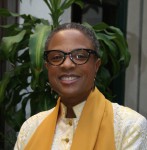 Recently, some African American pastors who came to “heckle” me changed their minds and instead asked me what they could do to move the conversation about moral equality for LGBT people in the Black church forward. I appreciate their honesty regarding the difficulty of this justice shift and the courage of those who will embark on it. It is clear to all of us that nothing will be resolved by press conferences and media fights, paid for by people who do not have our community’s best interest at heart.
Recently, some African American pastors who came to “heckle” me changed their minds and instead asked me what they could do to move the conversation about moral equality for LGBT people in the Black church forward. I appreciate their honesty regarding the difficulty of this justice shift and the courage of those who will embark on it. It is clear to all of us that nothing will be resolved by press conferences and media fights, paid for by people who do not have our community’s best interest at heart.
I would begin with the acknowledgment that Same-Gender-Loving (SGL) people have always been present in our churches. The gifts and skills of this community have blessed and benefitted the church for years, from the ushers at the door to the singers in the choir and the preachers in the pulpit.
Same-Gender-Loving people have always been present in our churches…What must be addressed is the expectation that in order to remain in their churches, this community must be relegated to functioning as a secret society. What must be addressed is the expectation that in order to remain in their churches, this community must be relegated to functioning as a secret society, forced to experience clandestine and anonymous relationships because to live their lives out loud and with integrity is not permitted. This suggests that having multiple secret partners is at least tolerated while community-supported monogamy is forbidden.
LGBT people are over-sexualized in the same way African Americans are, but for LGBT people, this myth is often encouraged and supported by the culture of the church. Acceptance is in direct proportion to how well a SGL person can stay on the “down low” and not be seen often with the same person. Why should anyone have to live this way?
I would also suggest that the leaders of churches move beyond the “fear of association” paradigm that gives rise to secret friendships—and sometimes romantic relationships—with Same-Gender-Loving people while these same leaders simultaneously berate them from the pulpit. I am aware that there is a great fear of being labeled, due in large part to the presence of an embedded competitive patriarchy model in the African American church. It is not unique to us, but the competition is fierce to have the biggest, best, and most at any cost.
Our community needs some secure grown men and women who know who they are and have the will to do what Jesus did. He did not diminish the company he kept in order to aggrandize himself…That is the way secure, mature, and loving leadership conducts itself. Our community needs some secure grown men and women who know who they are and have the will to do what Jesus did. He did not diminish the company he kept in order to aggrandize himself. He let folks judge him by his company without reprisal. That is the way secure, mature, and loving leadership conducts itself.
Finally, to my LGBT sisters and brothers, it is time to give some real thought to the damage done to your psyche by continuing to silently support emotional and theological abuse. I am aware that there is a price to pay if you refuse to be simply tolerated and relegated to the secret society, but most of the freedoms we experience today came because someone said, “enough is enough.”
Most of the freedoms we experience today came because someone said, “enough is enough.” The question is when is “enough” enough for you? The question is when is “enough” enough for you?
I know we are slow to change but let’s get to work on this, Family, so we can move on to greater work together.
This post has been modified from its original version.